We all prefer to think that we know ourselves. Perhaps you feel you are good at coping with stress or that you are an empathetic person. How often is this presumption true, though? We all depend on hunches or other people’s feedback, which is partial and subjective. That is where a psychometric test for emotional intelligence can be of use.
Imagine it as a mirror—not a physical one, but an emotional one. A mirror that reflects your emotional skills in an unbiased, organized manner. Different from guessing, an emotional intelligence test gives you an outside-in, data-based perspective on how you perceive, regulate, and apply emotions at work and in life.
In this article, we will delve into how they measure, what they measure, and why they are important for personal and professional development.
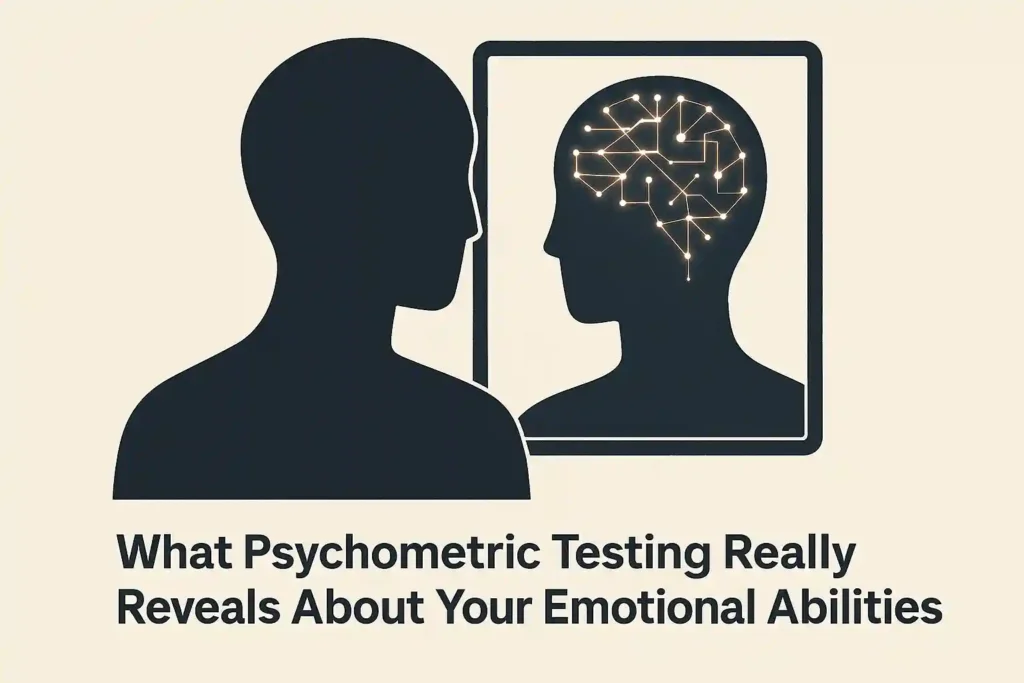
Beyond Horoscopes: The Science of How Psychometric Tests Work
The layman tends to confuse psychometric testing with personality tests or horoscopes, and yet the science is quite different. So, how psychometric tests work?
Fundamentally, these tests rest on two pillars:
- Reliability: A reliable test yields the same results in the long run. If you take the test today and some weeks later in similar conditions, your scores must not significantly alter.
- Validity: A valid test measures what it intends to. For instance, if it states that it is testing empathy, it must not inadvertently measure problem-solving.
Most psychometric tests of emotional intelligence employ two primary methods:
- Self-reporting questionnaires: You respond to statements regarding how you typically feel or behave. For instance, “I remain calm under pressure.” The program then examines your tendencies.
- Ability-based testing: They are problem-solving situations. For instance, you might be presented with having to analyze the emotional tone of a photograph or narrative.
All these collectively paint an in-depth portrait of your emotional landscape—something far more scientific than hunches or offhand opinions.
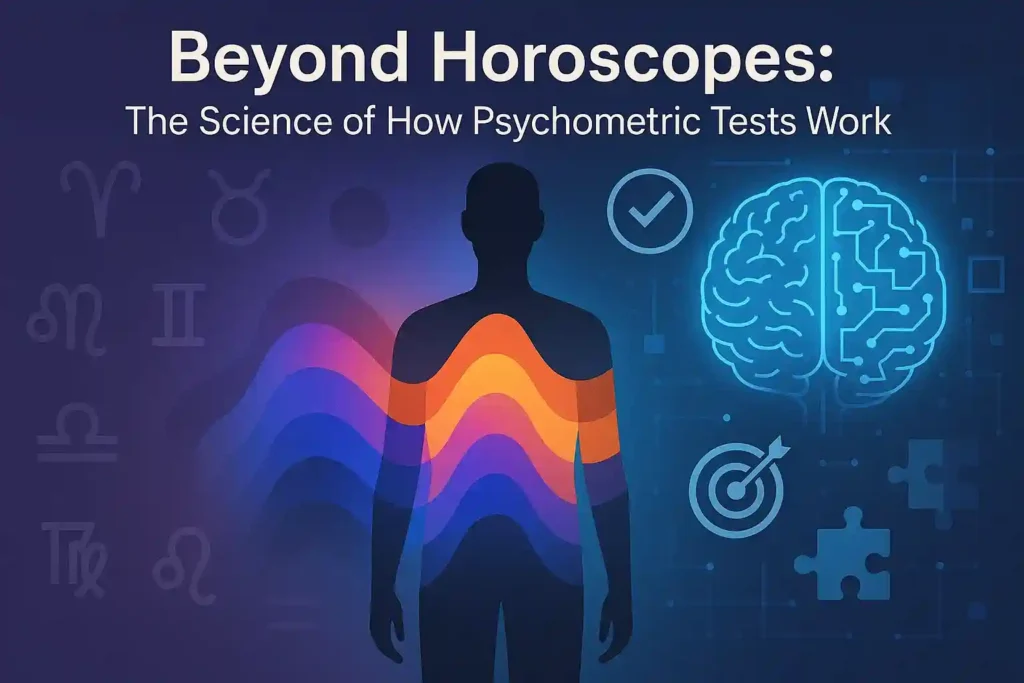
Interpreting the Emotional Intelligence Test
An emotional skills test is not labeling you as “bad” or “good” with feelings. Rather, it deconstructs your abilities into major areas, which tend to be based on Daniel Goleman’s popular model. Let’s explore what the tests show us:
- Self-Awareness: Knowing Your Own Feelings
This is the basis of emotional intelligence. Do you notice yourself getting angry during a meeting? Are you aware of what provokes your stress? Self-awareness enables you to know your own emotional patterns and leverage them to make better decisions.
- Self-Regulation: Controlling Your Emotions in a Healthy Way
Everyone gets angry, stressed, or disappointed. But self-regulation is an estimate of how well you manage those feelings rather than being controlled by them. Someone with effective self-regulation is able to stop, think, and respond carefully, instead of acting impulsively.
- Motivation: Your Inner Drive
Motivation in emotional intelligence is not necessarily about rewards from outside, such as money or praise. It’s about your own commitment and hopefulness. Do you maintain your focus even when obstacles mount up? Tests gauge this internal strength and motivation.
- Empathy: Understanding Others’ Emotions
Empathy goes beyond sympathy. It’s about tuning into what others feel, even when they don’t say it aloud. This skill is essential for leadership, teamwork, and strong relationships. An EQ test can reveal whether empathy is your natural strength or an area for growth.
- Social Skills: Managing Relationships Effectively
This is where all the other abilities meet. Social abilities show your capacity for building trust, conflict resolution, cooperation, and influencing others in a positive way. Good scores here usually correspond to enhanced leadership potential and better team working.
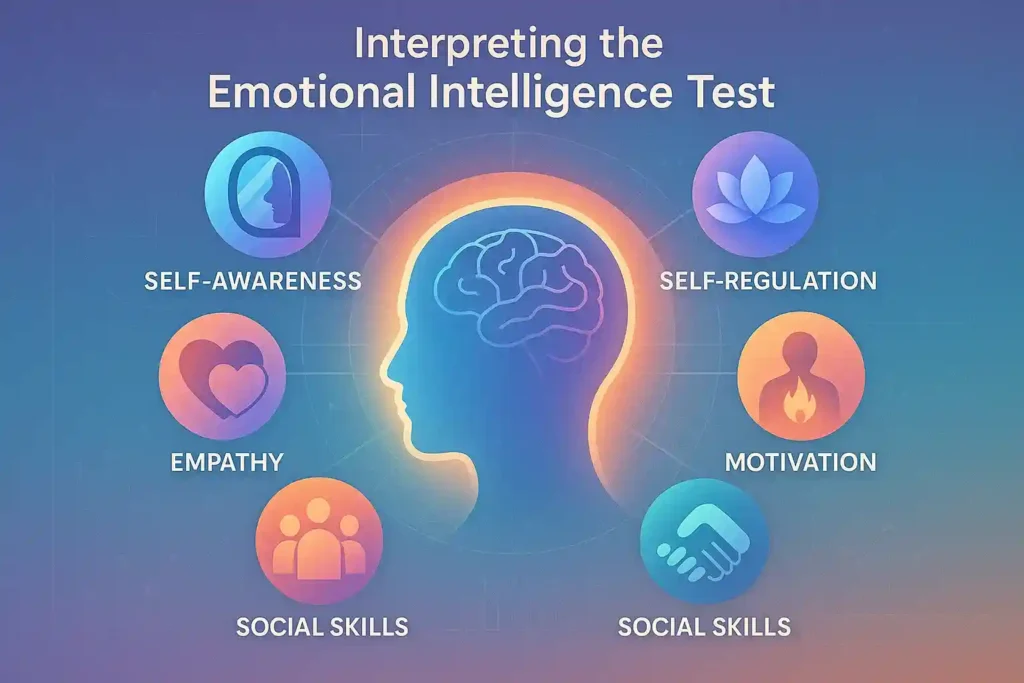
The Practical Benefits of Psychometric Testing
And why should anyone take these tests? The benefits of psychometric testing are relevant to individuals as well as to businesses.
For Individuals
- Increased self-awareness: You now clearly see your blind spots, the beginning of improving.
- Better communication: Your knowledge of emotional style enables you to communicate more effectively and work with a variety of personalities.
- Enhanced career planning: With this information, you can plan your career to best fit into jobs where you can do your best.
For Organizations
- Better teamwork: Results can be used to construct teams that include a balance of various emotional strengths.
- Enhanced leadership development: EQ tests determine who has the potential to lead both with logic and with empathy and influence.
- Less conflict: Knowing how people respond emotionally, businesses can reduce tension at work and promote teamwork.
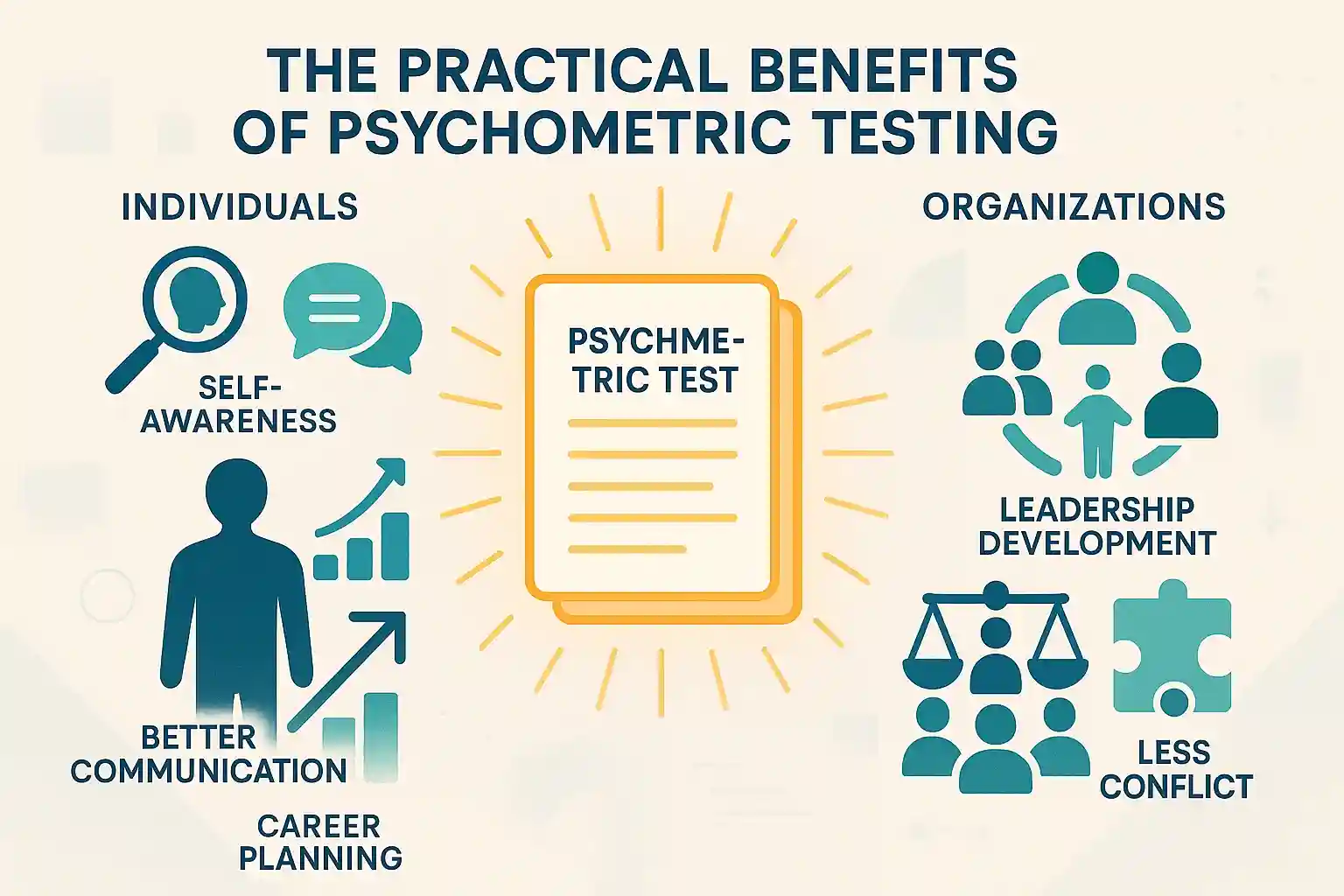
What These Tests Can’t Tell You
We need to be frank about the limitations of these tools. Psychometric testing is strong, but it isn’t magic.
- They are a snapshot in time. Today’s results may change based on your personal growth or changes in your life.
- They may be impacted by your mood when you take the test. A tough day might influence how you answer.
- They need to be interpreted by professionals with expertise. Raw scores don’t mean everything without explanation.
- They are a tool, not a condemnation. A low score in one aspect isn’t a permanent judgment—it’s a call to improve.
Honesty creates trust. An awareness of these limitations enables individuals to use the results wisely.
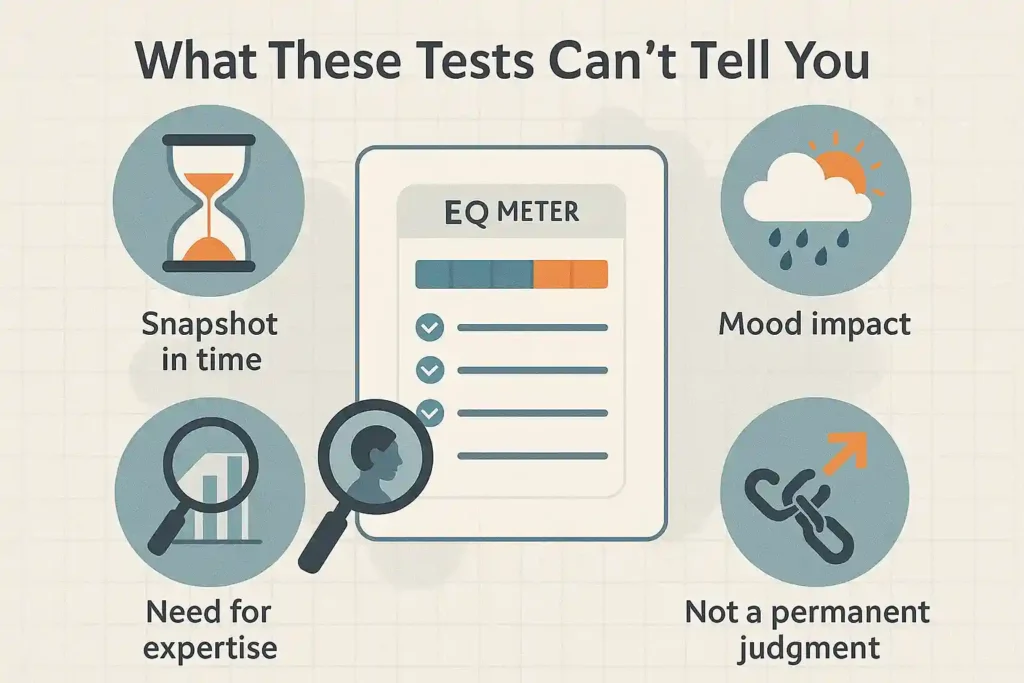
Conclusion: Unlocking Your Potential
An emotional intelligence test isn’t the final step—it’s only the start. These tests are similar to a map, illuminating where you are now and where you might be tomorrow. But the path of individual and organizational development involves effort, contemplation, and practice.
Whether you’re a person looking for insights into your strengths or an organization looking to create emotionally intelligent teams, psychometric testing provides a systematic, consistent method to begin.
At Emotional Ability Resources (EaR), we feel that the unlocking of your emotional abilities is the path to a more balanced, successful, and satisfying life.
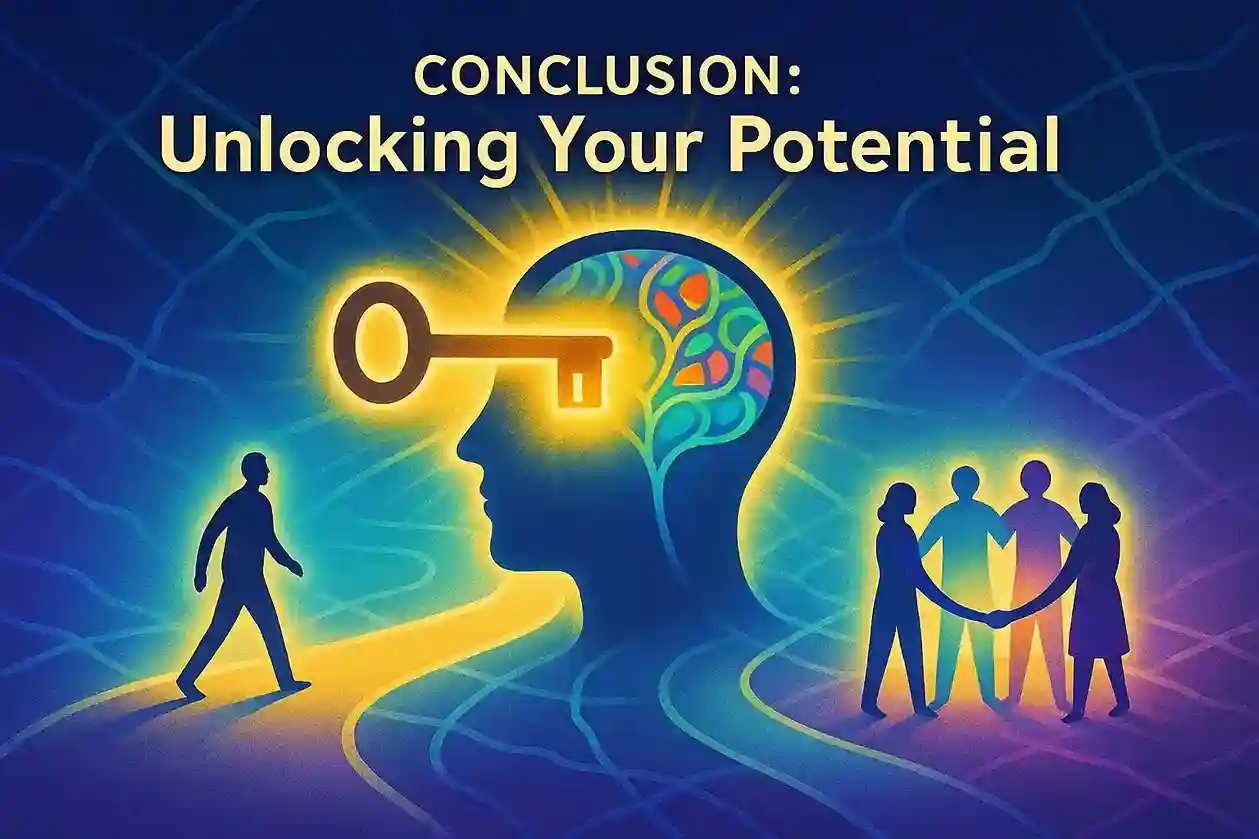
Frequently Asked Questions
Q1. Can you really study for or “cheat” on an emotional intelligence assessment?
Not really. These tests pick up actual patterns in the way you think and react. Attempting to “fake” your responses often results in mixed outcomes.
Q2. How accurate and reliable are free online psychometric tests versus paid ones?
Free tests may provide a rough idea but may not have the scientific integrity of validated, fee-paying assessments. For serious application, particularly in the workplace, it’s safer to use professional instruments.
Q3. How can a low score in one area of an emotional abilities test be improved?
By practice and awareness. For instance, if you’re low in empathy, you can consciously practice listening and noticing nonverbal behavior when having conversations.
Q4. Are these tests culturally biased, and how does this impact the findings?
Some tests may capture cultural differences, but professional tests are made to reduce bias and adjust to various groups.
Q5. What’s the difference between an ability-based EQ test and a self-reporting questionnaire?
Ability-based tests assess how well you do at emotion-related tasks, whereas self-reporting tests assess how you feel about your own emotional abilities.
Q6. How do companies use psychometric testing for hiring and team building?
They apply it to select candidates with high people skills, construct balanced teams, and support leadership development initiatives.
Q7. Can a psychometric test diagnose mental health conditions like autism or ADHD?
No. These assessments test for emotional intelligence, not medical illnesses. Only licensed therapists are able to diagnose mental health disorders.

